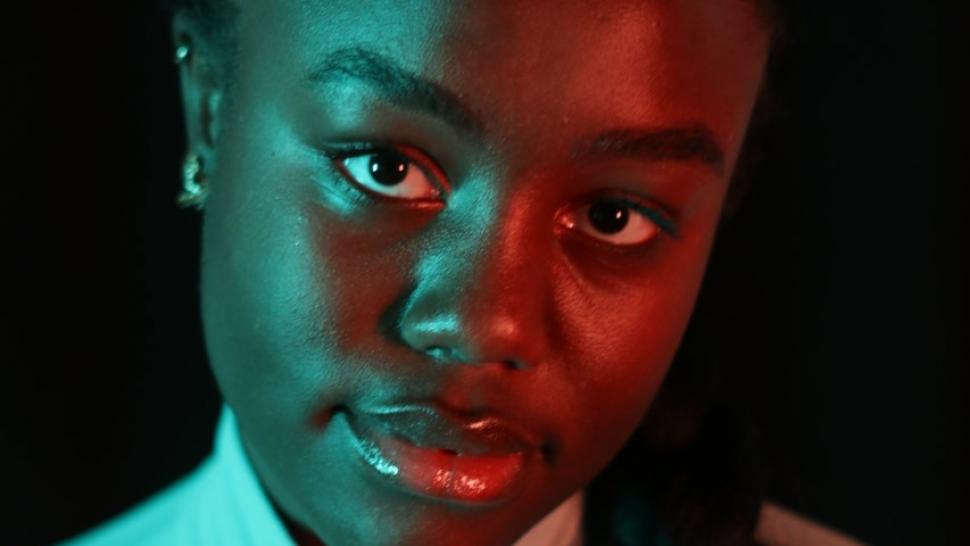
Tanzeil Moustapha has the kind of personality that gives people permission to be themselves. Her recent short film is at once joyful, tragic and raw.
"About a month ago, I lost my mother to COVID. She was only 59," she narrates over images of her late mother and family.
She sought to depict the resulting grief in a way that felt authentic and showed that bereaved relatives can still smile, feel joy and function.
"My mother showed me what unconditional love meant and what strength truly was – being true to yourself and doing what is hard," said Moustapha.
The film was an application for the CityLine Scholarship for BIPOC Women. In October, Moustapha was invited to CityLine studios as one of two finalists. The scholarship includes financial support, mentorship with host Tracy Moore and internship opportunities.
Moore introduced Moustapha as the crew played her film. When she walked onto the stage to be interviewed, Moore couldn't contain herself any longer.
"We lied to you, honey. We said there were two finalists – there's one, and it's you!"
Production handed Moustapha a massive bouquet as she smiled through tears.
Moustapha, a Film and Media Production student at Humber College, used her scholarship submission to explore her relationship with her mother. She describes the matriarch as intelligent, hardworking and "great at everything."
"She left a mark on every person's life, and that's how I want to be. I want to be that type of person, no matter what your walk of life or belief is."
Her mother's acceptance and humility shone when Moustapha came up against a daunting challenge in her late teens.
Moustapha started to struggle with dysthymia, also known as persistent depressive disorder, and anxiety at 19. Her mother didn't understand the condition at first, but she sought to. She accompanied Moustapha to her therapist's office, waiting patiently until the end of the session to ask questions.
Moustapha still feels her support.
"I knew I had the strength within to help me go through the trials and keep myself open and honest. I looked at this as an opportunity to be brave, which is something my mom always told me to do," she said.
Moustapha found confidence and connection in her mentorship with Tracy Moore.
"Being a Black woman and not seeing a lot of different people like you, it's difficult. And usually, when you see a public figure, you think, 'they don’t represent me,'" said Moustapha.
"She taught me how her experiences with microaggressions and things like that taught her to stick to her guns and morals. She's teaching me to feel comfortable in my own skin and not to be afraid to raise my voice."
Film and television sets are becoming more accessible as COVID-19 numbers level off, and it's almost time for Moustapha to spread her wings at the CityLine studio in downtown Toronto.
For now, she's honing her skills at Humber.
"I love how we get to dip our toes into everything at Humber. You get a good amount of knowledge on everything, so when you leave, you know what you want to do," said Moustapha.
Her experience with depression informs her plans for the future. She's trying to "go with the flow" rather than managing every detail. Instead of being perfect, she wants to take risks.
Speaking candidly about her mother and her mental health in the short film was just the beginning. Since its release, old friends and contacts have been reaching out to tell her their own stories. She's working on honing her screenwriting abilities to further amplify her experience.
"I look to inspirations and role models like Michaela Coel, how she deals with trauma in a nuanced way in I May Destroy You," said Moustapha, referencing Cole's 2021 Emmy Award-winning limited series.
"That took a part of her soul, to be honest with herself and cut out all the noise."
You can watch Moustapha's scholarship submission here.